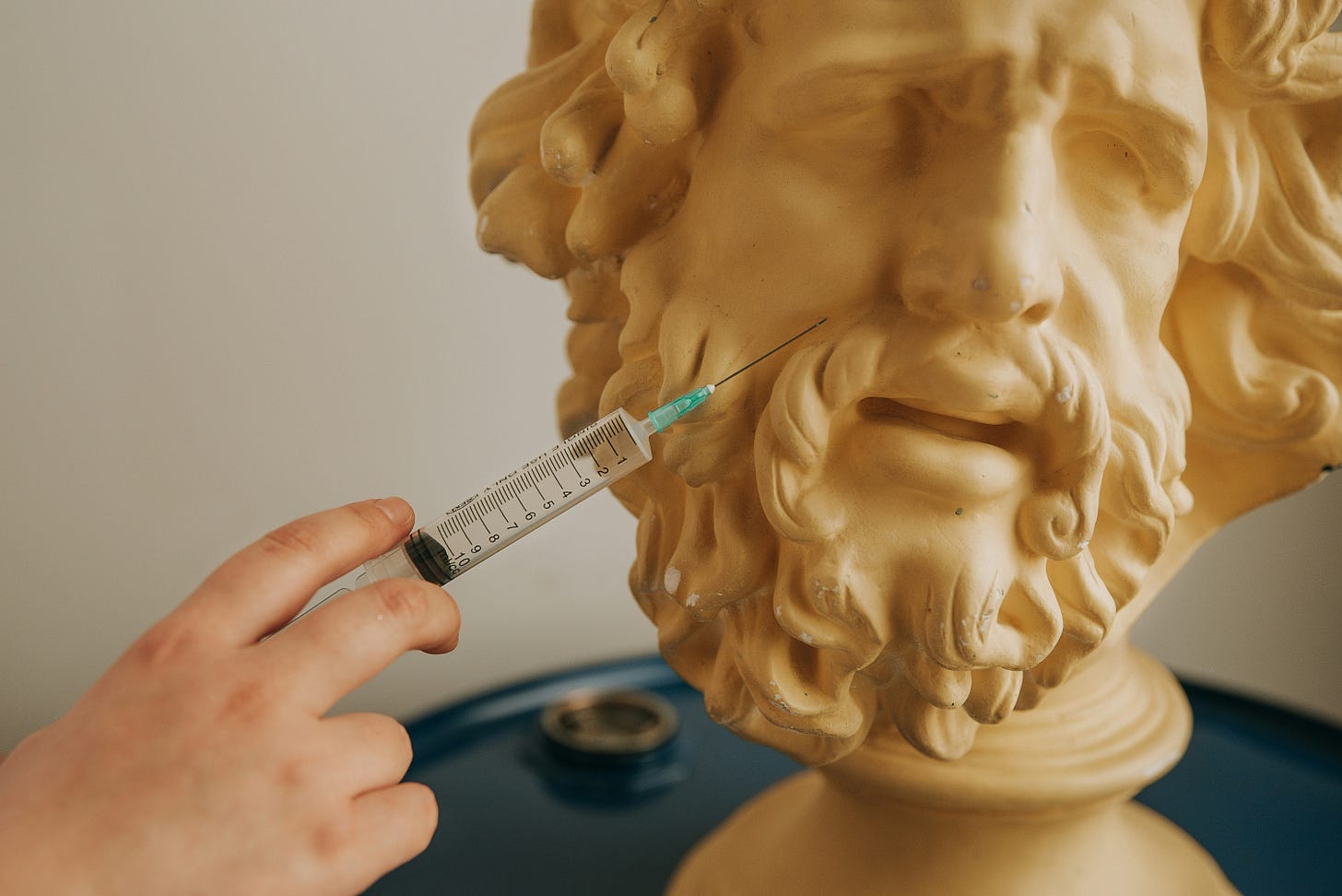The Neuroscience behind Botox
What if I told you every Botox injection contains paralyzing toxins?
Have you ever considered getting Botox? Whether you’ve thought about it yourself or noticed its ever-rising popularity, Botox is more than just a cosmetic treatment—it’s a poisonous toxin. Let’s break down how it works in your body and what the science says about its safety and effectiveness.
What Is Botox?
Botox’s full name is botulinum toxin, and believe it or not, it’s one of the most poisonous biological substances known to man. It’s produced by a bacteria called Clostridium botulinum, which uses this toxin as a defense mechanism against predators. In case you’re thinking it, C. botulinum was not created in a lab– it is naturally found worldwide in places like lakes, forests, soil, and the intestines of mammals and fish. Don’t worry though– the ones in nature do not make the actual toxin. Manufacturers collect this bacteria and expose them to certain conditions like low oxygen to make them ooze out the toxins used to “erase” wrinkles on the skin.
So, how does it work? Botox causes paralysis by preventing communication between nerve cells and muscle cells. Nerve cells typically release a "chemical messenger" called acetylcholine to get muscles to contract. When Botox is injected into specific muscles, it disrupts the critical connection between nerve cells and muscle cells, temporarily paralyzing the muscle and preventing movement. This is why people with extensive Botox treatments sometimes have difficulty making facial expressions—some of their muscles couldn't move even if they tried.
Why Do People Get Botox?
As we age, our skin loses elasticity (stretchiness), which leads to fine lines and wrinkles. Botox is used to “relax” the muscles beneath the skin, smoothing out these lines for a more youthful appearance. Beyond cosmetic use, Botox also has several medical uses, including treatment for migraines, excessive sweating (hyperhidrosis), excessive salivation, and facial spasms.
Is Botox Safe?
When administered in very small doses by a trained professional, Botox is generally safe. However, like any medical procedure, it comes with potential risks and side effects. These can include:
Temporary numbness
Headaches
Nausea
Muscle weakness or paralysis in unwanted areas if the toxin migrates away from the injection site
Additionally, Botox is not recommended for pregnant or lactating individuals, or for those with pre-existing neuromuscular diseases like ALS.
Considering Botox?
A lot of people are getting Botox right now, and you may be considering it too. The FDA has approved Botox for anyone over the age of 18, but most doctors recommend waiting until at least 25 to start treatments.
Botox is safe when handled correctly, but personally, I'm a little too nervous to inject poison into my face (but that’s just me!) Regardless, I think it is undeniably a fascinating product– scientists have managed to take one of the most dangerous toxins and turn it into a widely-used medical and cosmetic treatment.
Whether you’re considering Botox for wrinkles, migraines, or any other reason, it’s always best to be informed on the topic and consult with a trained professional. If you’re comfortable let us know your experiences with Botox in the comments!
References
Poulain, B., & Popoff, M. R. (2019). Why Are Botulinum Neurotoxin-Producing Bacteria So Diverse and Botulinum Neurotoxins So Toxic?. Toxins, 11(1), 34. https://doi.org/10.3390/toxins11010034
Medical News piece: https://www.medicalnewstoday.com/articles/158647#medical-uses
Nigam, P. K., & Nigam, A. (2010). Botulinum toxin. Indian journal of dermatology, 55(1), 8–14. https://doi.org/10.4103/0019-5154.60343
USDA article: https://www.fsis.usda.gov/food-safety/foodborne-illness-and-disease/illnesses-and-pathogens/botulism#:~:text=C.%20botulinum%20is%20prevalent%20in,active%20bacteria%20and%20produce%20neurotoxins.


Maybe I’m a weirdo, but I kind of like my wrinkles. I think they make my face look more interesting. My mom always said “at 20 you have the face you were born with, at 50 you have the face you deserve.” I’m 56, and all my wrinkles are from smiling, so maybe that’s why I like them!
This is so informative! I feel like everywhere people subtly made botox seem less (or even not as) dangerous as it can be.